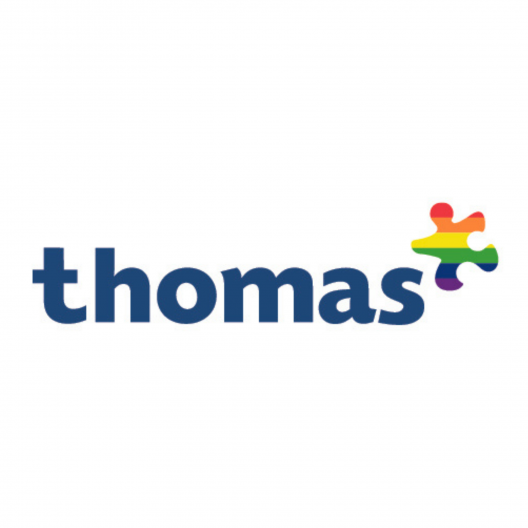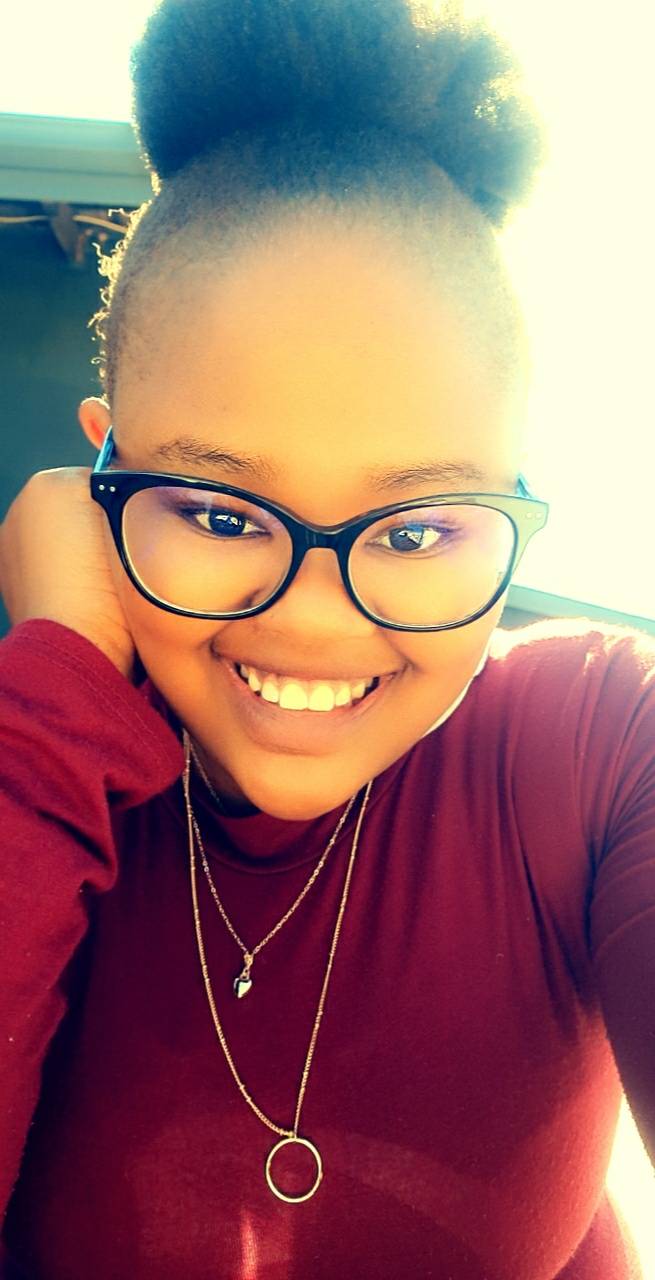
Shado Mogotsi on Black History Month: “Highlighting Black Superheroes Will Help to Raise the Profile of Black Excellence and Power”
Interviews
We had the pleasure to talk to Shado Mogotsi, a Helpdesk Engineer in South Africa at Thomas International.
1. Hello Shado! Thank you for talking to us. Could you please introduce yourself and tell us about your role at
your organisation?
I work in the Business Services team based in South Africa. I am a Helpdesk Engineer, which means I make sure that your computer is running as smoothly as possible. I make sure that you don’t miss a beat of your work. I have been with Thomas for about 7 months, and it has been really fun. I was thinking about it, and I am the only female, Black person in Thomas’ South African IT department. So I am one in a million!

I also have a five-year-old toddler, she is the light of my
life and is very feisty and smart. She keeps me on my toes. I first heard about myGwork when I started at Thomas during the All-Hands meeting led by Kira
(van Niekerk, Thomas’ Global Training and Development Lead) for Pride Month. I
took part in the quiz on LGBTQ+ statistics and facts.
I remember being so fired up after the quiz. My appreciation
for Thomas grew through our collaboration with myGwork because we are already
very people-orientated. It is such a warm environment. To be vocally and
actively open to the LGBTQ+ community is so important, especially in the social
and political environment we live in.
2. Were you taught about Black history in school? If not, what
difference would this have made to you?
We were taught Black history in South Africa, but we were
our Black history specifically. I wish we could have been educated more about
Black History Month and Black history in other countries and other regions of
the world. What we learned was also limited. The school system didn’t teach us
much beyond apartheid and Mandela and that struggle, but not much about the
highlights in Black history. That is an area that I think could be emphasized
more.
3. What suggestions do you have for organisations to mark Black
History Month?
Obviously, the focus on Black history month during October
is great, but I think that organisations could highlight Black icons and
tastemakers in various industries. Something more than just Mandela and Stee Biko because I feel that the focus on so few individuals has diluted what being Black actually means.
There are so many other Black icons. We could focus on
Mandela one month and the next month on Walter and Albertina Sisulu.
Even the more scandalous figures are often smart people and had an impact on Black history and Black people’s existence in the world. So highlighting Black
icons outside of South Africa; in the UK, France, Italy, and Malaysia. Highlighting Black superheroes will help to raise the profile of Black excellence and power.
4. How can everyone show up for Black History Month?
Make the time to participate because that is how we will
learn. Be open-minded and willing to learn. Don’t be shy to speak up. Around
twenty years ago, it was very taboo to even say the word ‘Black’. We can only
make progress through talking to each other and asking questions. You can ask
anything if you’ve got tact. Personally, I am very open, and if I don’t know
the answer to something I will go away and research it. People need to be
curious. Don’t try and participate in a rush. Speak. Ultimately, just be
willing to engage.
5. Why is it important that this month includes Black LGBTQ+
people from across history?
I think it is important because for quite a long time, the
LGBTQ+ community was looked down upon. It may have been more visible in recent
years, but that is a few years, and there is so much to learn. It is so
important to focus on them because the spotlight hasn’t always been on the
LGBTQ+ community and the Black people within it. A friend was saying that it’s
hard to be gay, but it’s even harder to be gay and Black. To have a platform
and a safe space, in which you can educate people about who and how you are is
very important. It’s vital that we bridge the gap and initiate conversations
between members and non-members of the LGBTQ+ community, especially Black
people. It’s important to raise awareness about where they have come from and
where they are going as well. There are so many beautiful stories to share. Until
you hear someone else’s perspective, you only have your own experience to
inform you. That’s why it’s important that we broaden our vocabulary, our
knowledge and our skills.
6. Who are your Black LGBTQ+ role models?
I am very arts-orientated, so a lot of my Black icons are in
the film industry. I would say Queen Latifah because she is an exceptional
singer, actor and rapper. She is an all-around great human and member of the
LGBTQ+ community. I like the subtlety with which she handled both these things.
Often with fame, there is the broadcasting of your personal life, including your
orientation. It was never a source of gossip with her. She came out in her own
time. It never overshadowed her creativity and her art.
Another local hero is Somizi Mhlongo. He is a very outgoing gay person. I love him because he is honest and in-your-face about who he is. He will ‘rock’ an eight-inch heel with the longest weave. He will make you laugh, but he is also a businessman. He is multi-talented; he is a choreographer and an actor. He acted in one of South Africa’s biggest movies, Seraphina. His mother is also a very famous actress in South Africa. Those two are my current LGBTQ+ icons and role models, because they own their LGBTQ+ membership so gracefully and powerfully.
A non-LGBTQ+ member role model of mine is Queeneth Ndaba. She lived in my
community and started the Dorkay House of Music, which created a platform for
many of our greatest jazz musicians. She introduced all of the children in our
community to music, and she is the reason why I am classically trained in the
violin. She exposed me to so many good humans and initiatives whilst being a
‘boss lady’ herself!
7. Do you have any favorite films/tv shows/podcasts etc for
learning about Black history?
The library is always the first place to go. Books by Steve
Biko and even Mandela himself. I won’t take away from who he is and was and
what he did for our country. Even cookbooks – some of my favorite cookbooks are
from Black chefs. To get a taste and a feel for Black culture on the culinary
level, go to the recipe book section and get a book by Siba Mtongana or My Modern
Kitchen by Chef Nti. They are very authentically Black in the things they cook, but they bring them
to the world in a way that is not uncomfortable. They bring the taste of South
Africa and Black culture to the world.
Food
and Liquor, an album by Chicago-born rapper Lupe Fiasco, is a great piece of commentary
on Black lives and the challenges faced on a daily basis.
Moonlight
is a 2016 film about Black members discovering their homosexuality that had a
powerful impact on society.
I am
also a fan of Spike Lee’s “Do the Right thing”
I recommend going to the library because libraries are not
as malicious and unreliable as the internet. I could search on the internet,
but the chances of finding malicious comments that bring people down is higher.
I lean more towards books because the information is more trustworthy. Anyone
can edit a Wikipedia page, but no one can speak for Nkosazana Dlamini Zuma or
Mos Def (he is a rapper). Video interviews with these people are also useful. Here
is a list of icons to discover:
- Mos Def, an American rapper, actor and singer. He is very
deliberate in the characters he chooses to portray in movies (see Something the
Lord Made).
- Somizi Mhlongo, a South African choreographer, actor and
media personality and member of the LGBTQ community
- Queeneth Ndaba, founder of Dorkay House of Music and pioneer
of South Africa’s jazz and blues music scene.
- James Baldwin, an American writer and member of the LGBTQ+
community who wrote Go Tell it to the Mountain, a peek into life in Harlem as a
teenager.
- Steve Biko, author of Black Consciousness in South Africa was
a South African anti-apartheid activist who was unapologetic in his fight for
his people.
- Issa Rae, an American actress, writer, and comedian.
- Queen Latifah, an American screen and Broadway actress,
singer, and rapper whose music speaks to the lives of Black women and men.
- Nina Simone, an American singer and all-around powerhouse
within the jazz and blues genres.
- Nikki Giovanni, an American poet and activist.
- Shado Mogotsi, the youngest Black female to oversee IT support for three separate sites at Adcock Ingram, the first Black South African woman in Thomas International’s Business Services team and a classically trained violinist.

